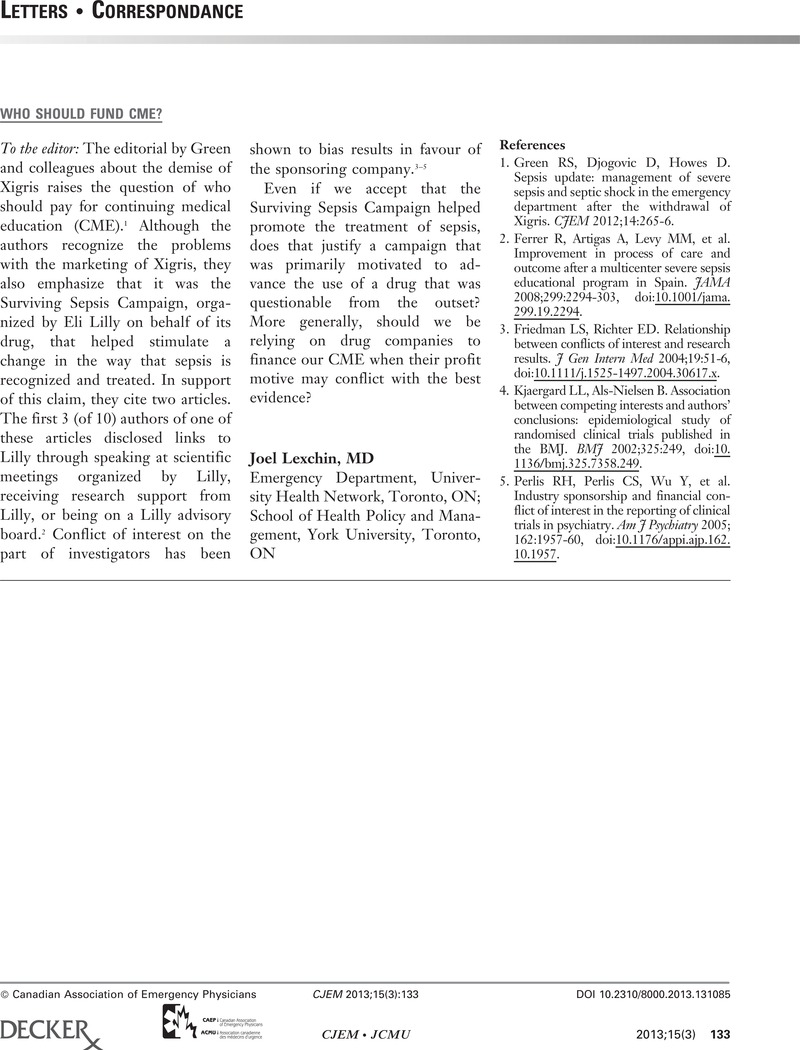No CrossRef data available.
Article contents
Who should fund CME?
Published online by Cambridge University Press: 04 March 2015
Abstract
An abstract is not available for this content so a preview has been provided. As you have access to this content, a full PDF is available via the ‘Save PDF’ action button.

- Type
- Letters • Correspondance
- Information
- Copyright
- Copyright © Canadian Association of Emergency Physicians 2013
References
1.Green, RS, Djogovic, D, Howes, D. Sepsis update: management of severe sepsis and septic shock in the emergency department after the withdrawal of Xigris. CJEM 2012;14:265–6.Google Scholar
2.Ferrer, R, Artigas, A, Levy, MM, et al. Improvement in process of care and outcome after a multicenter severe sepsis educational program in Spain. JAMA 2008;299:2294–303, doi:10.1001/jama.299.19.2294.Google Scholar
3.Friedman, LS, Richter, ED. Relationship between conflicts of interest and research results. J Gen Intern Med 2004;19:51–6, doi:10.1111/j.1525-1497.2004.30617.x.Google Scholar
4.Kjaergard, LL, Als-Nielsen, B. Association between competing interests and authors’ conclusions: epidemiological study of randomised clinical trials published in the BMJ. BMJ 2002;325:249, doi:10.1136/bmj.325.7358.249.Google Scholar
5.Perlis, RH, Perlis, CS, Wu, Y, et al. Industry sponsorship and financial conflict of interest in the reporting of clinical trials in psychiatry. Am J Psychiatry 2005; 162:1957–60, doi:10.1176/appi.ajp.162.10.1957.Google Scholar


